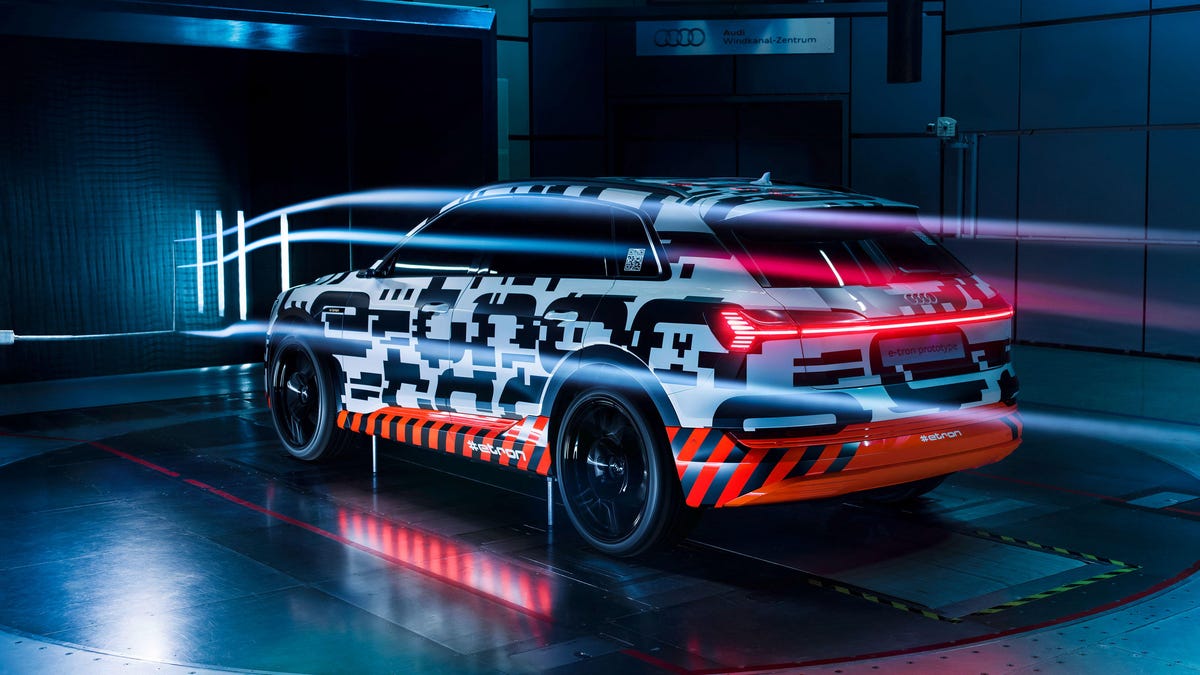Audi begins building E-Tron electric motors in Hungary
The motors will be key to new electric models like the E-Tron.

One of Audi's highest-volume engine plants has now started building electric motors. The Audi Hungaria facility in Győr, Hungary, began building what the company calls "electric motor axles," which combine motors with their power-control electronics. The production of these motors will be key as Audi ramps up its electrification efforts, specifically the launch of the E-Tron electric SUV.
The all-electric Audi E-Tron will debut later this year.
Audi's assembly setup at the Hungarian plant is modular so that the automaker can adjust as needed, with automated vehicles that transport components between each assembly station. Currently, the motor line is set up with 100 employees able to produce 400 electric motor axles per day, but by the end of the year that will expand to 130 employees working on three shifts. Audi says its production techniques allow for precise, tight windings of the copper wire within the motor stator coils, increasing efficiency. Each electric car will need two of the axles because they, like almost all Audi vehicles, will feature all-wheel drive.
When it comes to traditional powertrains, Audi Hungaria builds six different gasoline and three different diesel engines, with a total of 1.96 million engines built there last year. The plant has also installed three test benches specifically for testing the new electric motors and trained employees "to become electrical experts," Audi says.
Finished motor axles at the Audi Hungaria plant.
Audi is set to reveal its E-Tron electric SUV later this year, although we don't know exactly when. The debut was originally slated for August 30 in Europe but has been delayed and relocated to the US. The automaker has shown photos of the screen-filled, minimalist interior of the forthcoming E-Tron, as well as detailing its ultra-slippery aerodynamic properties and clever camera-based virtual side mirrors. Sadly, those mirrors are not yet legal in the US market, though Audi says it is working with legislators on changing that.
The E-Tron will have a 95 kWh battery pack located in the floor of the car and should boast a driving range of 250 miles in European testing. An EPA driving range for the US market has yet to be confirmed. The battery pack uses liquid cooling to keep it between 75 and 95 degrees Fahrenheit.
Audi plans to offer home chargers with 11 kW or 22 kW ratings, which will juice up the E-Tron fully in 4.5 or 8.5 hours, respectively. As to fast-charging out on the road, in Europe Audi has partnered with several other automakers on a charge network called Ionify. Here in the US, Volkswagen Group's Electrify America network plans to have 290 stations online by the end of 2019. Audi's fast-charging system will use the CCS standard at 150 kW, which will allow for an 80-percent/200-mile charge in just half an hour.

